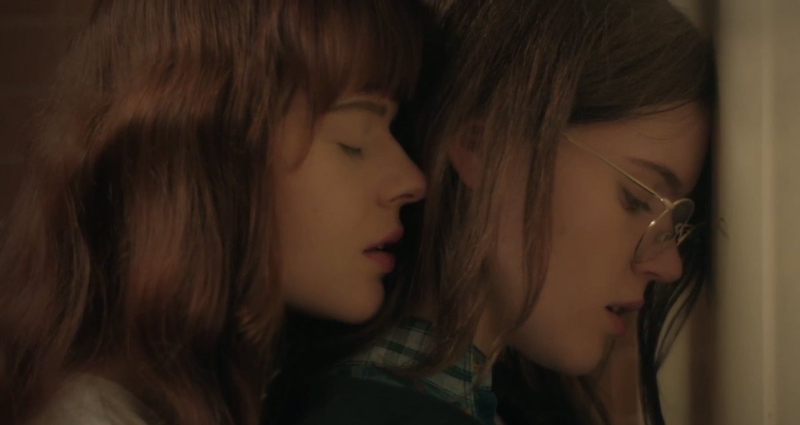Directors – Mark Slutsky, Sarah Watts – 2022 – Canada – Cert. 15 – 96m
***
A not especially religious 17-year-old sent to live with her Jehovah’s Witnesses uncle and aunt becomes smitten with a devout Witness girl her own age – out in UK cinemas and on SvoD and EST streaming platforms from Friday, June 16th
Following the breakdown of her mother (who we never see), 17-year-old Jaime (Anwen O’Driscoll), pronounced Jamie, is sent to live with her aunt Beth (Liane Balaban) and uncle Jean-Francois (Antoine Yared). She’s the sort of girl who wears Siouxsie And The Banshees or New Order t-shirts, prompting a remark by her uncle that he went to see the former many years ago, but these days he doesn’t do such things. That’s because the couple are Jehovah’s Witnesses (JWs) and consider such things worldly. Like the Witnesses in Apostasy (Dan Kokotajlo, 2017), they are waiting with eager anticipation for the Return of Christ and the establishment of the New System, when all things will be renewed and made good. The couple have decided not to have children until that state of things comes to pass, which they believe it will soon.
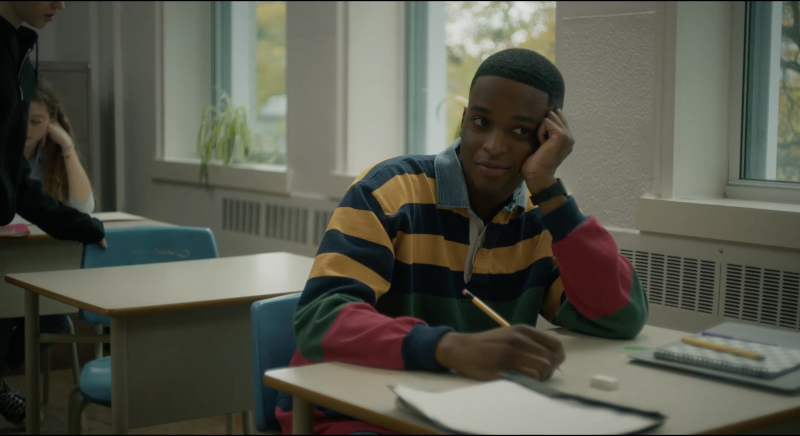
It’s easy enough to get time away from them, though, and Jaime hangs out on her own in the fabulous countryside, accidentally losing her portable music player when it falls off the bridge parapet on which she’s perched into the river below. At her new school, she strikes up a friendship with classmate Nate (Hasani Freeman), hanging out with him at home in his basement to play video games, smoke the occasional spliff and listen to his complaints about his dad never having time for him. It’s not a romantic thing, but he’s someone in whom she feels able to confide.
Her aunt and uncle, meanwhile, expect her to attend JW meetings with them. Ruling out the teenager’s regular jeans and hoodie attire as unsuitable, Beth insists on Jaime wearing a plain, no frills and, in Jaime’s completely understandable opinion, hideous dress to these meetings. She doesn’t have much choice about attending and because she neither subscribes to nor has any real interest in their religion, treats these occasions as events to be put up with. Until, that is, she spots Marike (June Laporte) sitting at the front. Then, while waiting outside for her uncle and aunt to finish talking to people inside, Jaime finds Marike coming to say hi, and a friendship is immediately struck up.
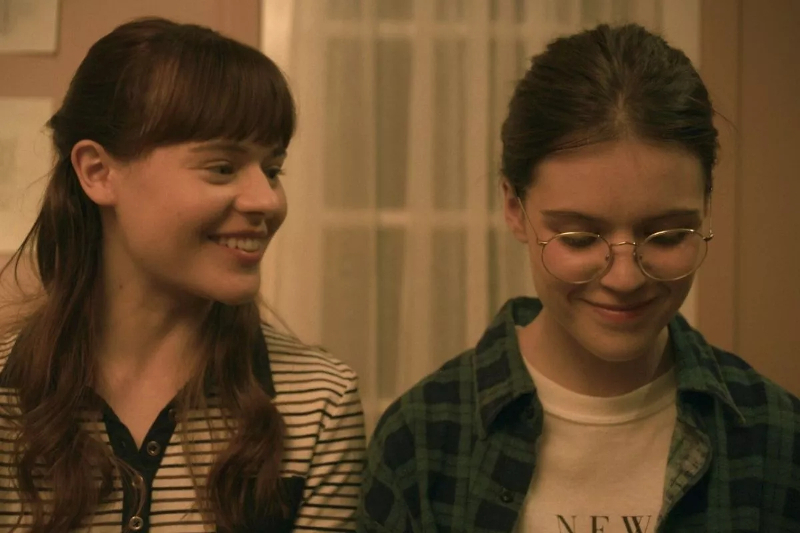
In due course, this leads to Jaime going over to Marike’s for sleepovers and, at her parents’ insistence, helping her with Field Work i.e. going door-to-door and handing out Watchtower magazines for a suggested donation. Their sleepovers involve arms around one another and, for the audience who see them alone together, the attraction between the two is obvious. As it is to Nate, who is fine with the whole situation.
One night, Marika insists Jaime close her eyes while Marika prays about them, and after some words about God bringing the two of them together, Marika suddenly kisses her. In an effort to spend more time with her, Marika suggests and instigates a trip to the cinema with two nice Witness boys where the two girls covertly hold hands and nip out to the Ladies together where they find a private cubicle… On the way back, one nestles her head on the shoulder of the other on the back seat.
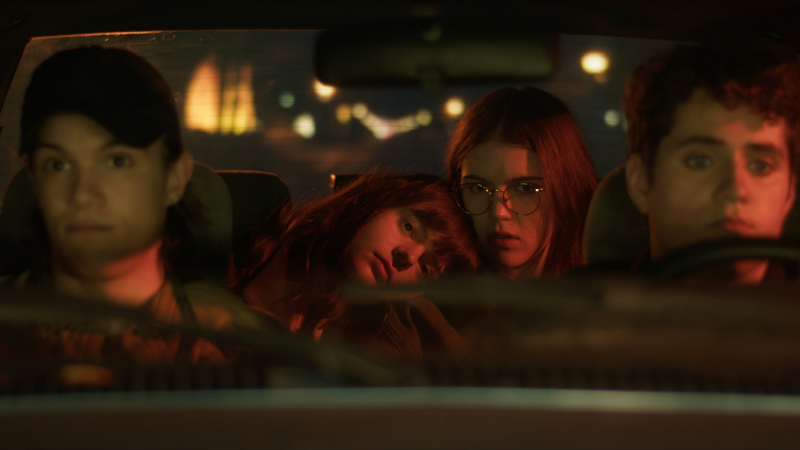
There are no obvious gaffes in the portrayal of Jehovah’s Witnesses here – co-writer / director Watts grew up in this sect and has stated that she made this film because it was the one she wanted to see when she was growing up when no such film existed. The film understands Witnesses and how they think and live, but doesn’t portray them and their world to quite the comprehensive degree that Apostasy did. Perhaps it’s simply less interested in that aspect of the tale. The lesbian romance is very sweet and charming and all the characters believable. All of which is fine as far as it goes.
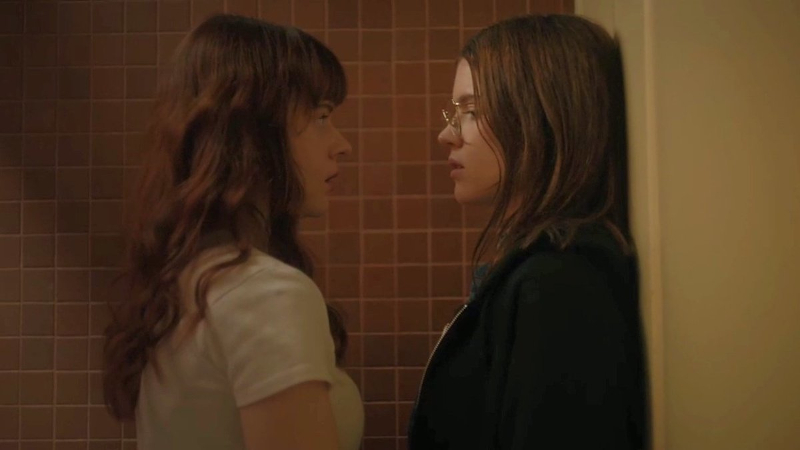
Where the film really scores, though, is in showing the incompatibility of a gay orientation with straight-laced, Jehovah’s Witness theology which, as here portrayed, doesn’t allow for any form of sexual expression outside heterosexual marriage. Which makes relationships pretty much impossible if you’re gay. The devout Marika ultimately attempts to do the right thing by both her parents and (her understanding of) God by marrying one of the two boys on the double date and having a child by him.
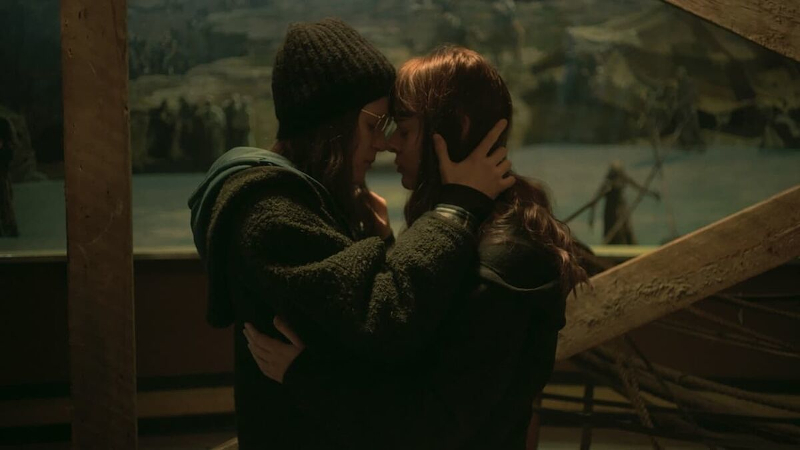
Towards the narrative’s end, Jaime, who has long since moved back home and moved on in terms of relationships, returns to visit the area and is unexpectedly met by Marika at the local railway station. The two are still in love, and Marika in particular is utterly miserable, claiming that if they could be together, then they’ll be united as a couple when the New System comes. The closed-minded theology behind Marika’s beliefs, by which she has steadfastly continued to live, has trapped her in an emotional straightjacket, yet her faith instinctively senses God must have a better way in mind. Within the prim and buttoned-down world of Jehovah’s Witnesses, though, that seems a hope unlikely to ever be fulfilled. At least in this present life.
You Can Live Forever is out in cinemas and on SvoD and EST streaming platforms in the UK from Friday, June 16th.
Trailer:
